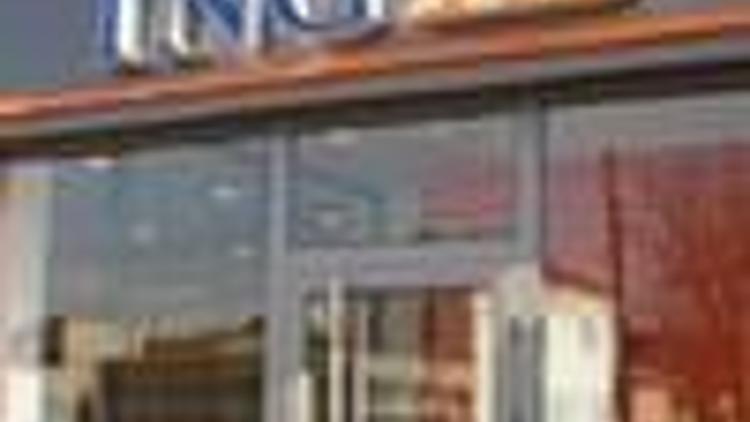ING investors cheer 10 bln euro cash injection of Dutch government
Güncelleme Tarihi:

Investors in financial group ING Dutch government cash injection and a disposal on Monday, with shares rebounded more than 20 percent at the start of trading Monday. (UPDATED)
Shares in the
After a weekend of intense negotiations, ING became the latest European bank to seek government help to shore up its core capital and restore investor confidence following the partial nationalization of rival Fortis two weeks ago.
The move, which will temporarily make the state ING's largest shareholder, was announced late Sunday and intended to prevent the company from becoming the latest victim of the global financial crisis.
The state bought 1 billion of a new class of shares - there are 2 billion common shares outstanding - for 10 euros ($13.46) each.
Shares closed at 7.34 euros ($9.86) Friday after a 27 percent tumble, but were quoted 21 percent higher at 8.87 euros ($11.93) in early trading in
ING TO CUT DIVIDENDS
ING said Sunday it would cut dividends for the rest of the year and had agreed to cancel bonuses for executives.�
ING, who bought
"We are in a large financial storm, and the storm has been building in recent weeks. We wanted to make sure we had a buffer, a buffer large enough to carry us through the storm," ING Chief Financial Officer John Hele told CNBC.
"Our shareholders and customers, all our stakeholders don't have to worry about ING group."
As its shares rose, ING's market capitalization jumped by more than 3 billion euros to about 18.8 billion euros, but the shares recouped only part of a 27.5 percent drop on Friday to a 13-year low.
The shares have fallen 67 percent since the start of the year, compared with a 45 percent drop of the DJ Stoxx European insurance index.
BUY BACK OPTION
The government shares earn at least 8.5 percent interest; that amount is expected to escalate each year. But ING can repurchase the shares for 15 euros ($20.14), giving it a way to limit dilution.
Dutch Finance Minister Wouter Bos said at a news conference on Sunday that would give the company a strong incentive to buy them back and see the state exit "as soon as this financial hurricane recedes."
Analysts considered the buy back option as a positive move.
"Although ING does not say so explicitly, the buy-back option suggests that it believes that it does not really need this capital injection," wrote analyst Ton Gietman in a note upgrading the company to "Buy" from "Hold".
"In our view, the shares should no longer trade at a multiple that includes a huge fear-discount."
STATE TO APPOINT BOARD MEMBERS
As part of the deal, the state will name two members of ING’s supervisory board. Bos said ING’s chief executive Michel Tilmant and other managers would receive no more than a years pay if they are dismissed.
"A rough estimate is an earnings per share decline of a third to 2 euros. It takes into account the capital support costs but also the expected recession effect next year," Petercam analyst Ton Gietman told Reuters.
He tentatively cut the target price to 15 euros from 26 euros and raised his recommendation to "buy" from "hold" on the government deal.
"A share issue would have been much worse and would not have been possible in the current market," said Fred Huibers, asset manager at Haags Effectenkantoor, who holds ING shares.
BARGAIN
As policymakers around the world pour in billions of dollars of state cash to help stabilize their banks, financial institutions such as ING and
Petercam's Gietman did not expect ING to sell further assets.
"It's not on ING's wish list to sell assets and I don't think it's necessary. You are not going to sell assets at a time when markets are bad because you will get a low price," he said.
In
Fubon will issue new shares to ING, giving the Dutch firm a 5 percent stake with a one-year lock-up.
The Dutch government has set aside 20 billion euros to pump capital into its financial institutions. Several British and Swiss banks have tapped similar government funding lifelines in the past week.
Together with the 16.8 billion euros for the partial nationalization of Fortis, the Dutch government has now spent nearly 5 percent of the country's gross domestic product to help banks.
Most of the smaller listed Dutch financial companies have indicated that they do not plan to ask for capital support, but ING and insurer Aegon had said they were looking at the government offer.
Aegon shares rose 2.7 percent on Monday, broadly in line with the DJ Stoxx European insurance index, which was up 3 percent.

